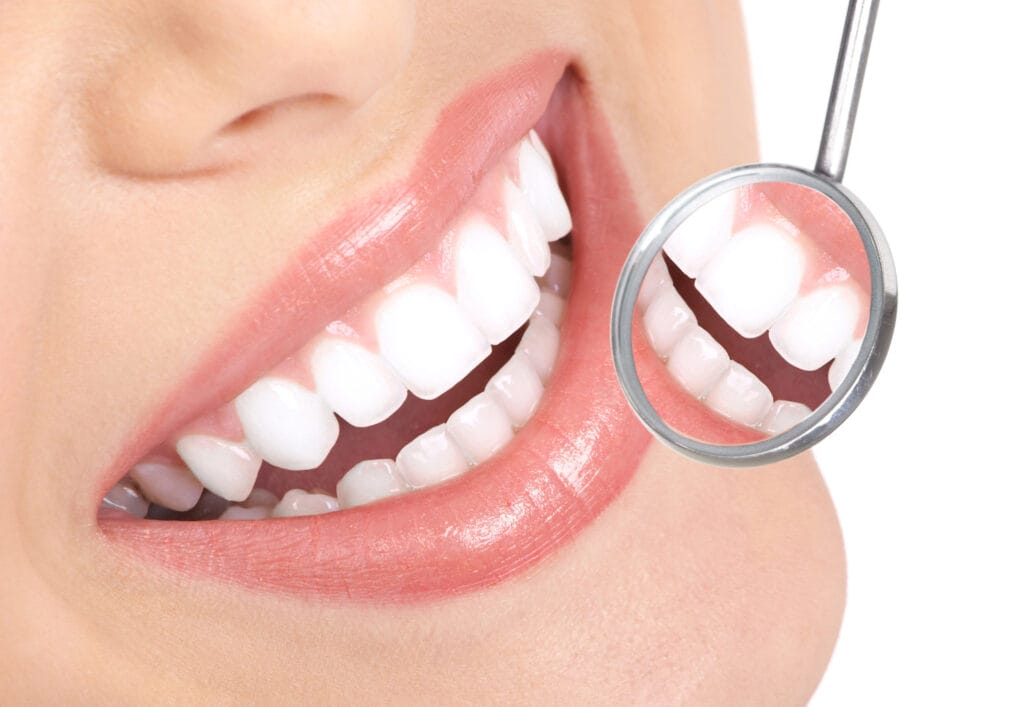Ah, wisdom teeth—those late arrivals that can disrupt the tranquillity of your mouth like unruly guests crashing a peaceful gathering. Just when you thought you had it all figured out, these third molars have a knack for causing discomfort, pain, and even a bit of chaos as they emerge or become impacted. In this guide, we are here to help you navigate the twists and turns of this dental saga. We’ll provide valuable insights into the early symptoms of an impacted wisdom tooth and equip you with actionable tips to manage the accompanying pain, helping you discover a healthier, pain-free smile.
What is an Impacted Wisdom tooth?
Wisdom teeth typically make their appearance during late adolescence or early adulthood, usually between the ages of 17 and 25. However, not all wisdom teeth erupt smoothly and take their rightful place in the dental arch. In some cases, they can become impacted, which means they fail to fully emerge through the gums or do not have enough space to grow properly.
Impacted wisdom teeth can lead to various complications and oral health issues. The most common cause of impacted wisdom teeth is a lack of sufficient space in the jaw to accommodate the emerging wisdom teeth. Other factors that can contribute to impaction include the angulation of the tooth or obstruction by surrounding bone or soft tissue.
Symptoms of an Impacted Wisdom Tooth
Some of the symptoms of impacted wisdom teeth can include:
- Red or swollen gums
Impacted wisdom teeth can cause inflammation and irritation in the surrounding gum tissue. This can manifest as redness or swelling around the affected area. If you notice persistent gum redness or swelling, it could be an indication that your wisdom teeth are impacted and causing an inflammatory response.
- Tender or bleeding gums
Impacted wisdom teeth can lead to gum tenderness and sensitivity. You may experience discomfort or pain when you touch the gums near the impacted tooth. Additionally, due to the inflammation and irritation, the gums may be more prone to bleeding, especially while brushing or flossing.
- Jaw pain and difficulty opening your mouth
Jaw pain is a common symptom associated with impacted wisdom teeth. The pressure exerted by the impacted teeth on the surrounding structures can cause pain, soreness, or aching sensations in the jaw. This discomfort may be more pronounced when biting down or opening your mouth wide.
- Swelling around the jaw
The presence of impacted wisdom teeth can result in swelling around the affected area. This swelling may extend to the cheeks and cause visible enlargement or puffiness. If you notice significant swelling or a swollen appearance around your jawline, it’s important to consult your dentist for evaluation.
- Bad breath and unpleasant taste
Impacted wisdom teeth can create spaces or pockets where bacteria and food particles can accumulate. The trapped debris can lead to the development of oral bacteria, causing bad breath or an unpleasant taste in your mouth. This can be persistent and difficult to eliminate even with regular brushing, flossing, and using mouthwash. If you consistently notice these symptoms, it may be a sign of impacted wisdom teeth.
- Sinus Issues
The infection of impacted upper wisdom teeth can sometimes cause sinus-related symptoms. You may experience congestion, sinus pressure, or even headaches due to the proximity of the wisdom teeth to the sinus cavities.
It’s important to note that not everyone with impacted wisdom teeth will experience all of these symptoms. The severity and combination of symptoms can vary from person to person. If you suspect you have impacted wisdom teeth or experience any of these symptoms, it’s advisable to consult with a dental practitioner for a thorough evaluation and appropriate treatment options.
Treatment for Impacted Wisdom Teeth
Impacted wisdom teeth can have various oral health issues, including pain, infection, tooth decay, gum disease, and shifting of adjacent teeth. As such, timely treatment is essential to maintain your overall oral health and prevent potential long-term complications.
Extraction
When a wisdom tooth becomes impacted, extraction is typically recommended to eliminate the root cause of the pain. Extraction can be performed by a general dentist or an oral surgeon, depending on the complexity of the case.
- It involves removing the impacted tooth from its position within the jawbone and gum tissue.
- Before the procedure, the dental practitioner will evaluate the impacted tooth using X-rays or other imaging techniques to determine the best approach for extraction.
- During the extraction procedure, local anaesthesia or sedation may be administered to ensure your comfort.
- The dentist will make an incision in the gum tissue, remove any bone obstructing the tooth, and extract the impacted tooth.
- Sutures may be placed to promote proper healing.
Post Extraction Care
Following the extraction, proper post-operative care is essential for optimal healing. Your dentist will provide instructions on how to care for the extraction site, including proper oral hygiene practices, managing discomfort or swelling, and dietary restrictions during the recovery period. Adhering to these guidelines will help ensure a smooth healing process and minimise the risk of complications.
Wisdom Tooth Pain Management
Just like any other surgical procedure, it is normal to experience some degree of swelling, discomfort or mild bleeding after undergoing wisdom tooth extraction. These symptoms should subside within a few days to a week. In the meantime, there are several measures you can take to manage post-extraction pain and promote a smoother recovery.
- Prescribed pain relievers can help reduce pain and inflammation. Follow the recommended dosage instructions or consult with your healthcare provider for appropriate usage.
- Apply ice packs to the outside of your face in the area of the extraction site to reduce swelling and alleviate pain. Use the ice pack for 15 minutes at a time, with breaks in between, for the first 24-48 hours after the procedure. Be sure to wrap the ice pack in a thin cloth to prevent direct contact with the skin, which can cause ice burns.
- After the first 24 hours, dissolve half a teaspoon of salt in eight ounces of warm water and gently swish the solution in your mouth for about 30 seconds before spitting it out. Repeat this rinse several times a day, especially after meals, to keep the extraction site clean and reduce discomfort.
- In the initial days following extraction, stick to a soft food diet to avoid irritating the extraction site. Opt for foods such as mashed potatoes, yoghurt, smoothies, soup, and cooked vegetables. Avoid hard, crunchy, or spicy foods that can potentially dislodge blood clots or cause discomfort.
- Gently brush your teeth avoiding the extraction site on the first day, and rinse your mouth with an alcohol-free mouthwash, as recommended by your dentist. Be cautious not to spit forcefully, as this can disrupt the blood clot and delay healing.
Remember, pain and discomfort following wisdom tooth extraction will gradually decrease over time as you heal. If you experience severe or prolonged pain, excessive bleeding, or any concerning symptoms, immediately contact your dentist for further guidance and evaluation.
Experience the Joy of a Pain-Free Smile with Great Alpine Dental
At Great Alpine Dental Advanced Aesthetics & Implants, we believe that your smile deserves the most compassionate care. As such, we are dedicated to providing comprehensive dental services to ensure your oral health and overall well-being and guide you on your journey to a healthy and beautiful smile.
If you are experiencing any symptoms of an impacted wisdom tooth, we suggest booking a consultation with us to determine the status of your wisdom teeth and devise a personalised treatment plan tailored to your unique needs. Whether your wisdom tooth needs extraction, preventive measures, or ongoing monitoring, we will guide you every step of the way to alleviate your pain and restore your dental health. Let’s connect.





